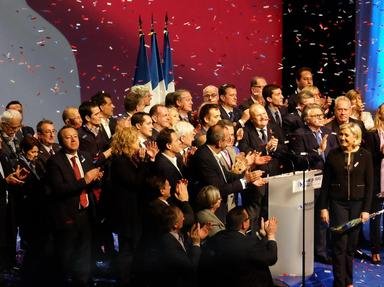Quiz Answer Key and Fun Facts
1. James G. Blaine (Republican)
2. William Jennings Bryan (Democrat) -- First Loss
3. William Jennings Bryan (Democrat) -- Second Loss
4. William Jennings Bryan (Democrat) -- Third Time
5. Grover Cleveland (Democrat)
6. Winfield Scott Hancock (Democrat)
7. Benjamin Harrison (Republican)
8. Charles Evans Hughes (Republican)
9. Alton B. Parker (Democrat)
10. Theodore Roosevelt (Progressive)
Source: Author
bernie73
This quiz was reviewed by FunTrivia editor
stedman before going online.
Any errors found in FunTrivia content are routinely corrected through our feedback system.

